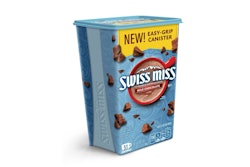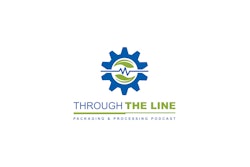A white paper from private-brand consultant Daymon lists five ways private brands and retailers can prepare to address the fundamental shifts in consumer shopping and spending behaviors that have resulted from COVID-19. While Daymon gathered survey information for the white paper early in the pandemic, in April 200, these trends have continued throughout the crisis.
According to Daymon, those shifts that have occurred due to the COVID-19 that will affect future buying habits are social distancing, altered brand and shopping behavior, and reduced spending. Since March, social distancing has made the home the center of eating and entertaining, with 60% of consumers reporting that they planned to eat at home more and only 25% reporting that they expected to eat out as frequently as they had before.
See it Live at PACK EXPO Connects Nov. 9-13: Cup Filling & Sealing Equipment: New Autoprod & Holmatic Technology, by R.A Jones. Preview the Showroom Here.
Regarding altered behavior, Daymon notes that vast out-of-stocks have forced shoppers to change brands and preferred stores. When surveyed, 70% of shoppers reported purchasing new a new or different brand than they had pre-COVID, with nearly 30% reporting a positive experience after switching brands and intending to maintain these purchasing shifts post-pandemic. Online shopping has also increased, with 49% of consumers reporting in April they would shop online versus 42% before the crisis.
With roughly one-third of U.S. families having been affected financially, either with job loss or a decline in salary, consumers are looking for alternative solutions to national brands, notes Daymon. As a result, as of April, private-brand sales increased 34%, outpacing national brands.
To address these shifts, Daymon recommends the following five key action areas to drive brand success in the world’s “new normal”:
1. Prioritize Innovation: The need for innovation across categories has been especially heightened as consumers express added interest in making their daily routines and homemade meals more exciting. Private brands should continue planned innovation and drive innovation in high-growth categories.
2. Enhance Solutions: The at-home-meets-foodservice consumption behavior will likely persist post-COVID-19. Private brands should create new foodservice-comparable meal solutions, forge partnerships with local businesses, and promote solutions with creative merchandising.
3. Educate on Benefits: There will be a desire to return to a sense of normalcy when shopping for groceries. Private brand communications should emphasize quality, destination-worthy products, and savings
4. Deliver Inspiration: Consumers are likely to continue a more home-based lifestyle as stay-at-home orders continue to lift and non-essential businesses reopen. Private brands can deliver inspiration to customers by delivering unique private brand recipes and events, as well as distributing unique content such as online or live-streaming cooking classes
5. Lead E-Commerce: Digital shopping services are here to stay. Dedicating online space to private brands, along with linking private brand solutions for consumer needs is imperative for being on the forefront of digital solutions and top of mind for consumers.
See it Live at PACK EXPO Connects Nov. 9-13: What is machine flexibility and why is it important? by ROVEMA North America, Inc. Preview the Showroom Here.

























